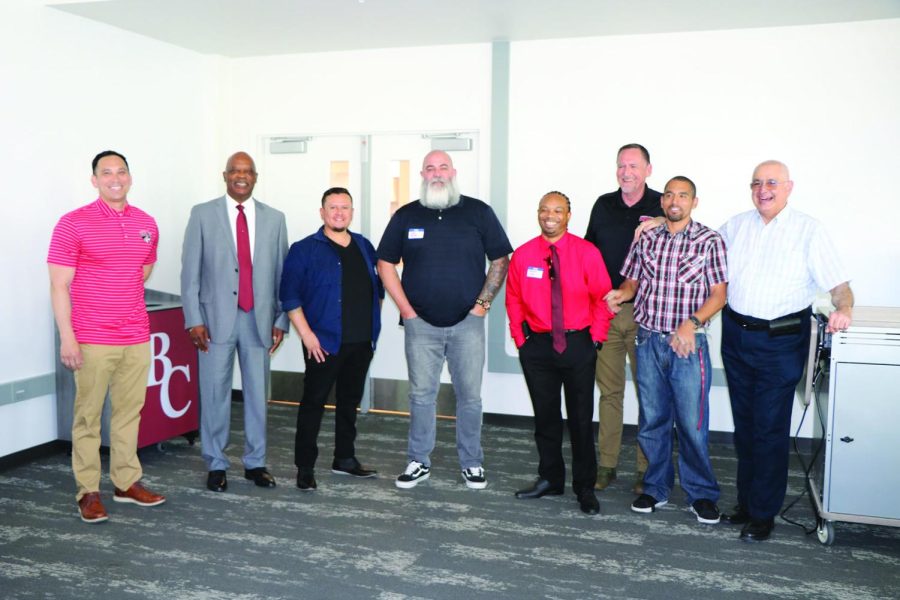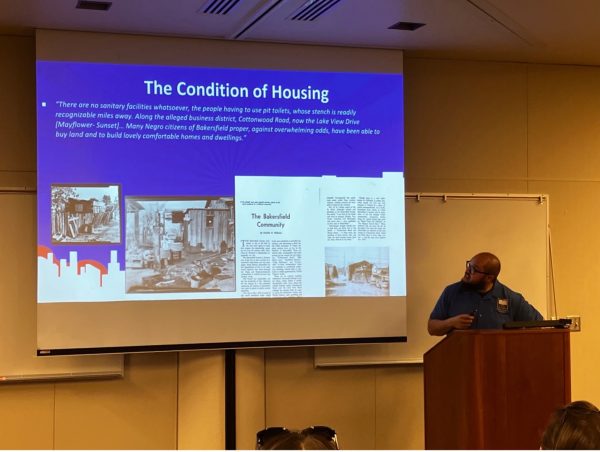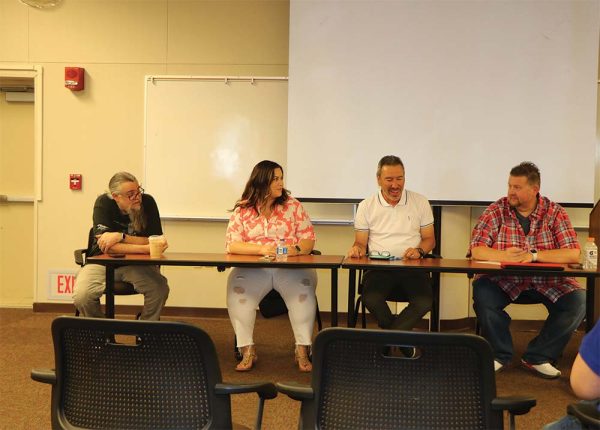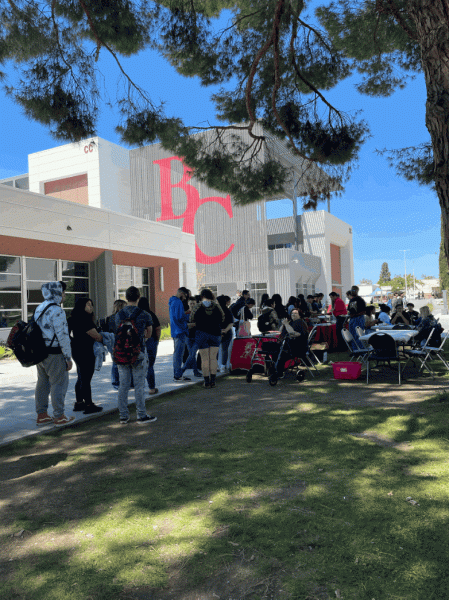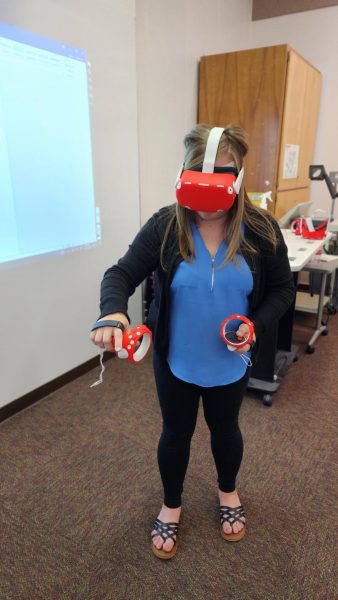BC talks second chances
BC hosts Second Chance Month event to discuss opportunities for justice-impacted people on April 27.
April 28, 2023
The Rising Scholars Program concluded “Second Chance Month” with a panel discussion in the Fireside Room April 27 featuring four formerly incarcerated individuals who decided to better their lives with the help and support from inmate rehabilitation and education programs like the Rising Scholars Program.
The four speakers, Darnell Green, Louie Wright, Ian Villatoro, and Emmanuel Limaco, were greeted by BC’s new interim president, Steve Wallkins, along with the Rising Scholar Program faculty, and those attending the event. They were also introduced to the Dean of Instruction, Richard McCrow, and outgoing Interim President, Dr. Zav Dadabhoy.
Bryan Hirayama, lead faculty for the Rising Scholars Program, introduced the speakers and guided the panel with questions about where they are now and what they are doing.
Darnell Green is currently a senior at Cal State Fullerton and is looking into graduate programs. He is also a Behavioral Therapist, a John Irvin resident participant, has worked within the community as a health worker and housing navigator, and is the Outreach Coordinator for the Compassion Prison Project.
Louie Wright is a pastor at Canyon Hills in Bakersfield, CEO of One Door Community Resource & Recovery Center, the owner of Central Valley Sober Living, and director of the Prison and Addiction Initiative for City Surf.
Ian Villatoro is one of the 26 incarcerated individuals who helped start the Rising Scholars Program and kept it going and now works with Defy Ventures to help get individuals that are in his former position to start their careers and get hired.
Emmanuel Limaco just started at Adurra, a local engineering company, after earning four degrees at BC and a bachelor’s degree at Cal State Los Angeles.
They then went into their background, each discussing their childhood and what led them to be incarcerated.
As Villatoro stated at the panel, there was a pattern when the speakers were discussing what led them to incarceration. All had troubled childhoods where they had to “grow up too quickly.” They agreed that this along with other obstacles in their lives lead them to eventually find themselves in prison.
The speakers also discussed their time in prison. “You have to become the worst version of yourself to survive,” Green stated. He furthered his point by explaining that he and others in his position would get rewarded for violence because that was the culture of prison.
All four of the speakers agreed that the rehabilitation and education program inside their prison helped to change that prison mindset within them and within the culture of the prison.
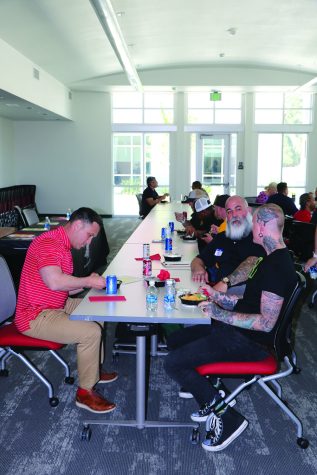
It was also changing how those who worked at the prison viewed the inmates. Villatoro looked back at the start of the Rising Scholars Program from inside the prison, saying, “My task on the inside was changing the minds of the staff.”
He recalled the time a guard gave a look of disgust when one of his peers stated that he would go on to college after getting his GED. This event is what made Villatoro decide to go to college.
Hirayama concluded the discussion by asking the speakers their thoughts on what most helps a successful “re-entry.” Wright said that making the resources accessible to inmates was most important while Green emphasized creating a safe environment just as Professor Hirayama has done for him. Limaco then stated that record expungement was most important to them (BC has held record expungement workshops) and Villatoro decided that creating the opportunities for career-starting most helps a successful “re-entry.”
After the discussion, lunch was provided. This gave those attending a chance to talk to the speakers individually. Some shared similar experiences and others engaged in discussion about the speakers’ current undertakings and ventures.


